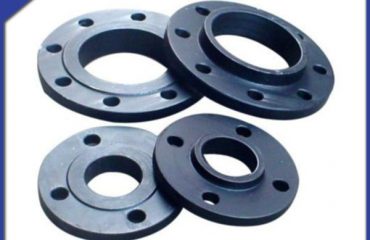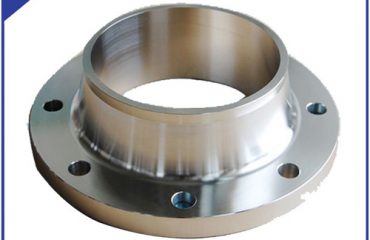
Forged flanges are widely used in various industries for their superior strength and durability. They are manufactured using a forging process that involves heating a piece of metal and then applying pressure to shape it into the desired form. This process results in a stronger and more durable product compared to other manufacturing methods such as casting or machining. In this article, we will explore the reasons why forged flanges ensure superior strength and durability.
Firstly, the forging process itself contributes to the enhanced strength of forged flanges. During forging, the metal is exposed to high temperatures which allow it to be easily manipulated and shaped. This heat treatment helps to refine the grain structure of the metal, resulting in a more uniform and compact arrangement of the metal grains. As a result, forged flanges have a higher density and greater resistance to deformation and stress. The improved grain structure also enhances the mechanical properties of forged flanges such as toughness, hardness, and fatigue resistance.
Secondly, forged flanges have fewer defects compared to flanges produced by casting or machining. The forging process allows for better control over the shaping of the metal, minimizing the occurrence of internal defects such as voids, porosity, or shrinkage. These defects can significantly weaken a flange and reduce its overall strength and durability. In contrast, forged flanges have a more uniform and dense structure, ensuring consistent mechanical properties and long-term reliability.
Moreover, forged flanges exhibit superior resistance to corrosion. The forging process results in a more refined and compact metal structure, reducing the presence of microcracks or exposed surfaces that are susceptible to corrosion. The absence of internal defects also minimizes the potential for corrosive agents to penetrate the flange, further enhancing its resistance to corrosion. This makes forged flanges particularly suitable for applications in corrosive environments such as offshore oil and gas platforms or chemical processing plants.
In addition to the inherent advantages of the forging process, the material selection for forged flanges also contributes to their superior strength and durability. Forged flanges are commonly made from carbon steel, stainless steel, or alloy steel, all of which possess excellent mechanical properties and resistance to corrosion. The choice of material depends on the specific application requirements such as temperature, pressure, and chemical compatibility. Regardless of the material, the forging process ensures that the material properties are maximized, resulting in a flange that is capable of withstanding the harshest conditions.
 Language
Language Espanol
Espanol English
English Italian
Italian عربى
عربى
 Skype: chinamaker99
Skype: chinamaker99  Tel: 86-316-5120812
Tel: 86-316-5120812 Email:
Email:  Whatsapp:
Whatsapp: 
